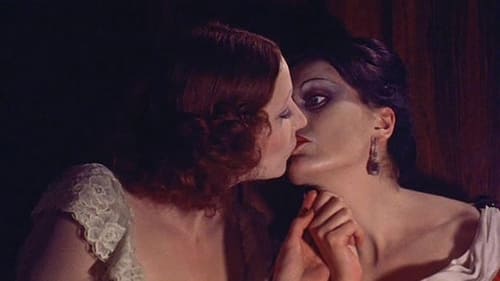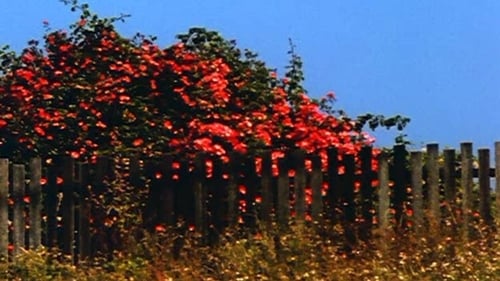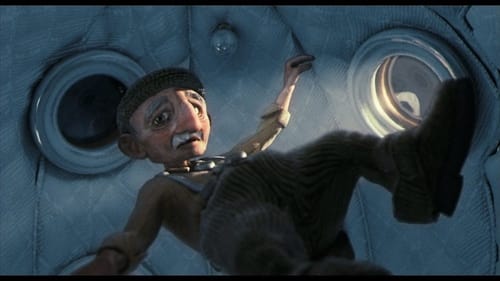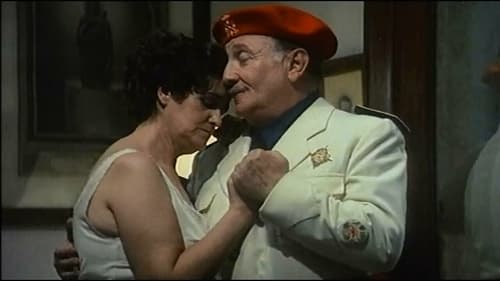Living (1971)
Género : Drama, Romance
Tiempo de ejecución : 15M
Director : Frans Zwartjes
Sinopsis
Frans Zwartjes and his wife explore their new home, and the sexual tension they've brought with them to it.

Presenta la historia de Peter Eagleman, un personaje que acompañamos desde la infancia hasta la vejez, siendo testigos de su peculiar fijación con el paso del tiempo y de la solución que parece encontrar en el cerebro de un grandioso escarabajo. (FILMAFFINITY)

Marilyn maketh. Marilyn taketh awayeth. Marilyn is trying really hard to create something good. For once, her expectation and reality are going to align. It will be epic. It will be tear jerkingly profound. It will be perfect. Nothing can go wrong.

Short film by Peter Kubelka. Arnulf Rainer contorts his mind and body before the camera.

John Whitney's pioneering work of computer animation, Arabesque, from 1975. This flowing, abstract short film is a wonder to behold, a work of art. Like many other computer graphics pioneers, this film suggests roots in psychedelics and spiritual quests as much as engineering and mathematics.

An experimental short film by John Whitney Sr. which combines animated shapes and colors; Computer graphics as dynamic, swirling art.

A woman plays with a bird as the camera's gaze is drawn to her legs.

An experimental look at the sexual life of a couple.

This performance of the Richard Wagner opera Logengrin was filmed in high definition for the Bayreuth Festival in 2011, and features vocalists like Georg Zeppenfeld, Klaus Florian Vogt, and Anette Dasch in the leading roles.

Un drama que tiene como fondo a la célebre prima donna española del siglo XIX María Malibrán, muerta a los veintiocho años mientras cantaba en una velada musical. Un film que está más cerca de Murnau o Stiller que de los contemporáneos de Schroeter.... Los actores parecen caminar o gesticular conforme a las leyes de otro planeta y avanza a una velocidad que no sabríamos reconocer como lenta ni rápida y es una especie de emoción pura y limpia del gesto, de la mirada, del caminar.

Martha Rosler explores kitchen utensils by alphabet.

Robert Breer animation from 1969. 16mm, color, silent, using spray paint & stencils.

Primera parte del Tríptico Elemental de España realizado por José Val del Omar y compuesto por Aguaespejo granadino, Fuego en Castilla y Acariño galaico. Presenta sonido diafónico, patentado por Val del Omar en 1944 y empleado por primera vez en este film.

Corto de Kuri Youji de 1963.

James Whitney’s Lapis (1966) is a classic work of abstract cinema, a 10-minute animation that took three years to create using primitive computer equipment. In this piece smaller circles oscillate in and out in an array of colors resembling a kaleidoscope while being accompanied with Indian sitar music. The patterns become hypnotic and trance inducing. This work clearly correlates the auditory and the visual and is a wonderful example of the concept of synaesthesia.

A scene from The Bells (1926) is optically reprinted and edited to Michael Gordon's 7 minute composition. A meditation on the fleeting nature of life and love, as seen through the roiling emulsion of a film.

The film is made up of one single take. The camera pans to the left, focusing on a dilapidated fence in a rural field, as Ella Fitzgerald's "All My Life" plays on the soundtrack. At the end of the 3 minute film, the camera tilts up to the blue sky just as the song ends.

A man in drag reaches for some sorbet and then eats it.

Phrases of Stephen Foster, set to music by Joel Heartling, are set to film in this autobiographical piece: a solitary female voice, occasionally joined by a chorus, sings phrases of sorrow as we watch a solitary man in shadows in an unadorned house: he stretches out, he picks his feet, he walks across a room, he rocks in a chair. Occasionally he watches two young children at play; the film sometimes speeds up. Handwritten words, like "dark void" and "waiting longing," cross the screen. Film and phrases often come in short bursts. Outdoor it looks gray and cold.

On a moonlit fall night, a priest races to the home of Mr. Moulin running a motorcycle off the road and arriving just in time to catch the old man as he falls from a chair on which he stacked books in order to reach a bottle of cognac. Mr. Moulin is a miser with a sock full of money that the priest would like to appropriate by selling the old man a space capsule that will take him to paradise. After a test drive and some negotiation, the deal may be struck, but then, there's a knock at the door.

Paulino Alonso es un hombre llano, del pueblo, que por su casual parecido con Francisco Franco es raptado y entrenado para la operación Jano. Su familia le da por muerto, e invocan su alma por medio del espiritismo con resultados negativos, lo que les hace sospechar que está desaparecido, pero no muerto.










